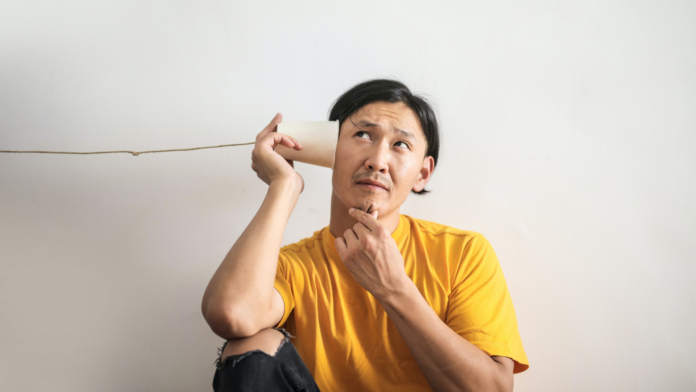“Go ahead. I’m listening.”
So says Kelsey Grammer as fictional psychiatrist Dr. Frasier Crane, offering advice to callers on his radio show. But his catchphrase could soon apply to us all, thanks to researchers using smartphone audio to monitor our mental health.
The University of Toronto team are using a smartphone app to record short bursts of ambient noise throughout the day. By measuring the volume of sound in these 15-second clips, researchers found patterns that correlated with symptoms of depression.
“It’s well known – though not perfectly understood – that there’s a connection between mental health and regularity in your days,” says Daniel Di Matteo, a PhD candidate in the Faculty of Applied Science & Engineering who led the research.
To find out more, the researchers designed an app to measure the volume of environmental noise and detect the presence of English-speaking voices. Installed on the phones of 112 adult volunteers, the app recorded clips every five minutes over a two-week period.
When plotted over time, the average volume of each recording reflects changes in daily activity from sleep to social interaction. The researchers looked for patterns in this data as a measure of ‘regularity’ in each individual’s daily activities.
Meanwhile, volunteers also self-reported their levels of social anxiety disorder, generalized anxiety disorder, depression and functional impairment.
The results confirm a connection between mental health and regularity, with consistent patterns in ambient noise associated with more positive mental health, particularly depression. It also highlighted the importance of hearing others speak for overall well-being.
But more importantly, this is the first time that ambient noise has been used in this way, highlighting the potential of smartphone monitoring for mental health.
“Consider how mental health monitoring currently works,” says Professor Jonathan Rose from the department of electrical and computer engineering. “Patients visit their therapist every week or so by going to a clinic or office. The patient chooses how to present themselves and the therapist interprets what they hear.”
But as we are permanently attached to our phones, so there is an opportunity to gather data far more frequently. Plus, with the recording happening in the background, the act of measuring isn’t changing the results.
This is a new area for mental health monitoring, with two further studies in process looking at word-based data and the potential to predict mental health issues. While the researchers are very aware of potential privacy concerns, they believe the app could be a real help to both patients and prescribers.
“When someone’s going into depression, they just kind of fade away,” says Rose. “Imagine an app with the capability to notify a spouse or a parent when this happens. Imagine one that could more finely track the efficacy of a prescription.”
This is a small but exciting step towards automated and objective measurements to help predict, identify and treat a variety of mental health conditions through our smartphones.








































